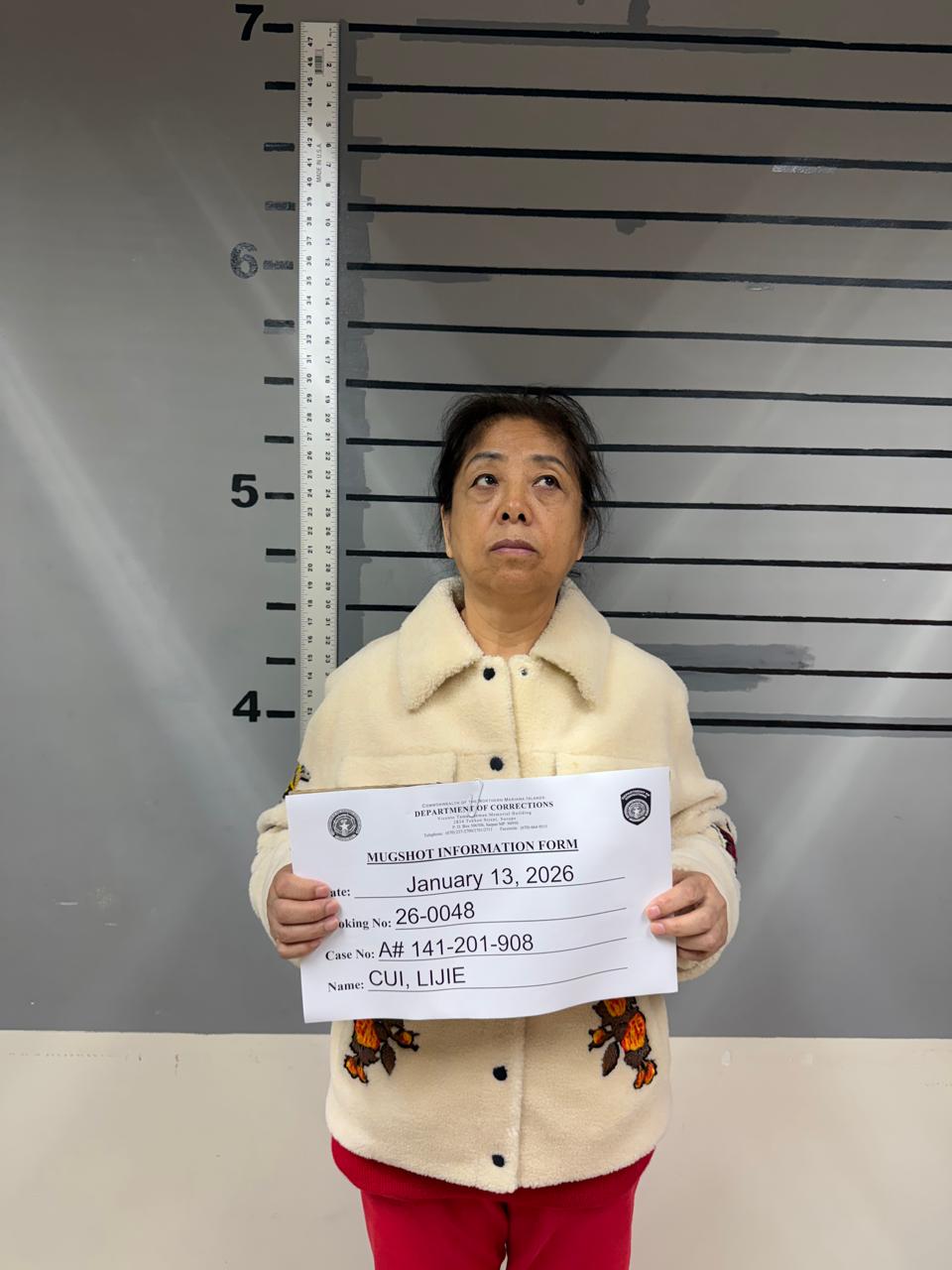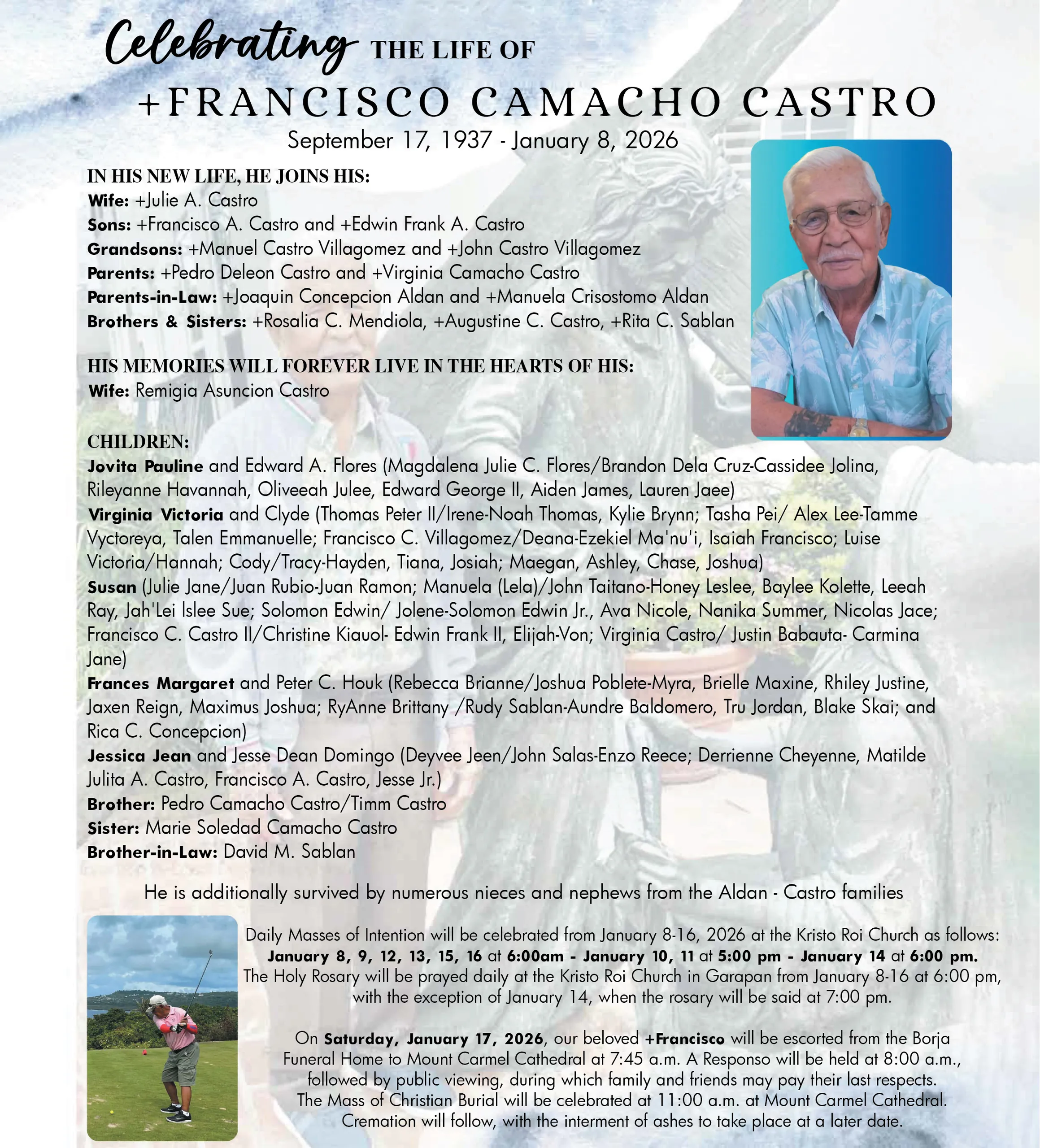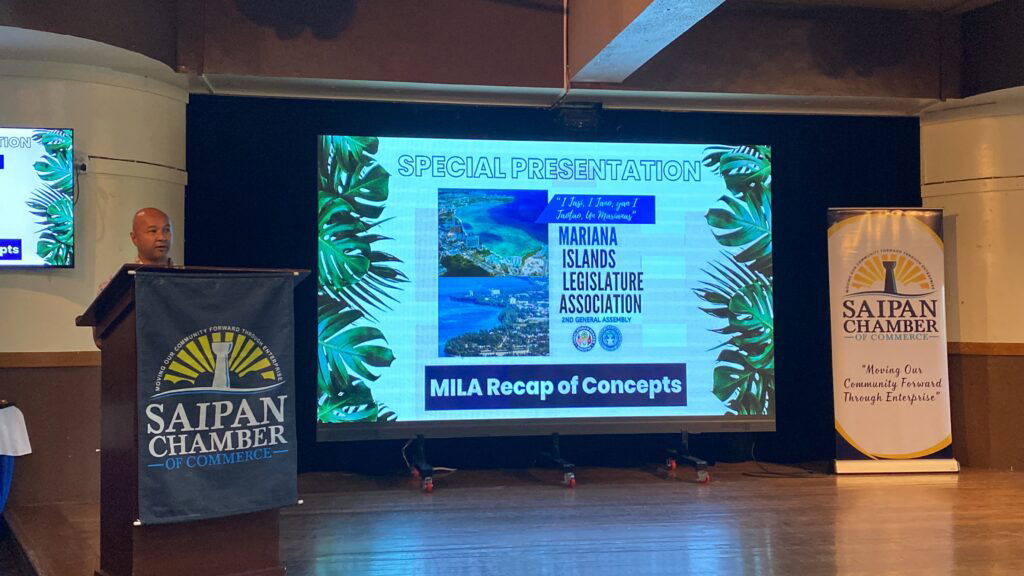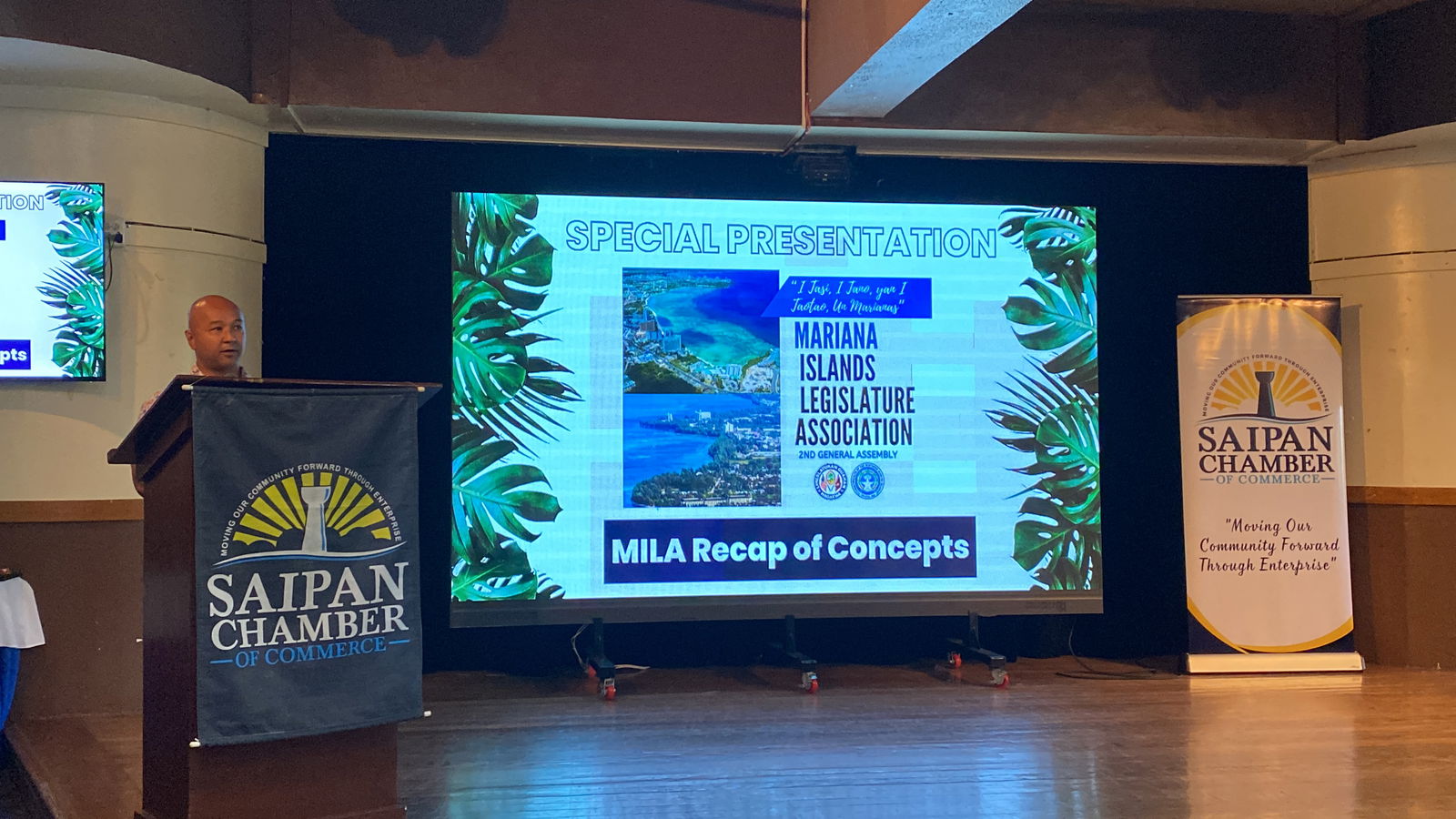
Joe Guerrero, president of the Saipan Chamber of Commerce, supports cabotage exemptions and the CNMI-Guam visa waiver program.
AT the Saipan Chamber of Commerce general membership meeting at the Pacific Islands Club on Wednesday, August 7, Chamber President Joe Guerrero and House Floor Leader Edwin Propst expressed support for key resolutions passed by the second general assembly of the Mariana Islands Legislature Association or MILA on Guam.
MILA, whose members are CNMI and Guam lawmakers, discussed regional issues such as airfare costs, labor, healthcare, and more.
The MILA resolutions highlighted at the chamber meeting were No.01-GA-2 on “Cabotage exemption for foreign carriers landing on Guam and the CNMI,” and No.05-GA-2 “Marianas Worker Visa and Marianas Regional Commission.”
Cabotage restrictions prevent foreign air carriers from arriving in the CNMI for passenger pick-up and then moving on to Guam, and vice versa. Currently, only United Airlines may do so, and it charges hundreds of dollars for a 30-45-minute plane ride between Guam and Saipan.
In an interview, Guerrero said exempting the Marianas from cabotage would be “tremendous.”
“The chamber believes in free enterprise,” he said. “Nobody is telling United to lower their fares, but if someone is economically able to provide a service at a lower price, then that’s a good thing for everybody. It allows us options,” he added.
He said removing cabotage restrictions could be a “pivotal” change that signals to investors that the CNMI and Guam have a unique economic tool that connects the locations.
“A lot of branches have operations in Guam and the CNMI,” Guerrero said. “If I wanted to open up a Naked Fish in Guam — which I’ve been thinking about — I don’t want to do it now because I would want to fly there weekly. But flying there at $500, $600 a pop will take away all my profit. If it was $150 or $200, I would do it.”
Guerrero said a Marianas-wide visa for foreign workers would also be good for the whole region.
“Stateside companies can open operations in both islands and be able to hire the workforce they need if there are not enough local workforce,” he said.
Guerrero also reminded his fellow chamber members that the CW-1 program will expire in 2029.
“It’s going to come very quickly upon us. Now is the time, not in 2028…to really promote or discuss these concepts,” he added.
He said economic studies have indicated that “we do not have the population base and the workforce to allow us to grow for the foreseeable future.”
He added, “Having a sufficient number of foreign workforce allows certain businesses to grow and they hire. They’re not going to hire just [CW-1 visa holders]. Most people, a majority of businesses want to hire local. It’s cheaper and you get them for long term. [CW-1 renewal] is every year.”
He said that in certain situations, such as when employers need skilled workers or when job vacancy announcements go unfilled for months, it “makes sense” to hire eligible foreign workers.
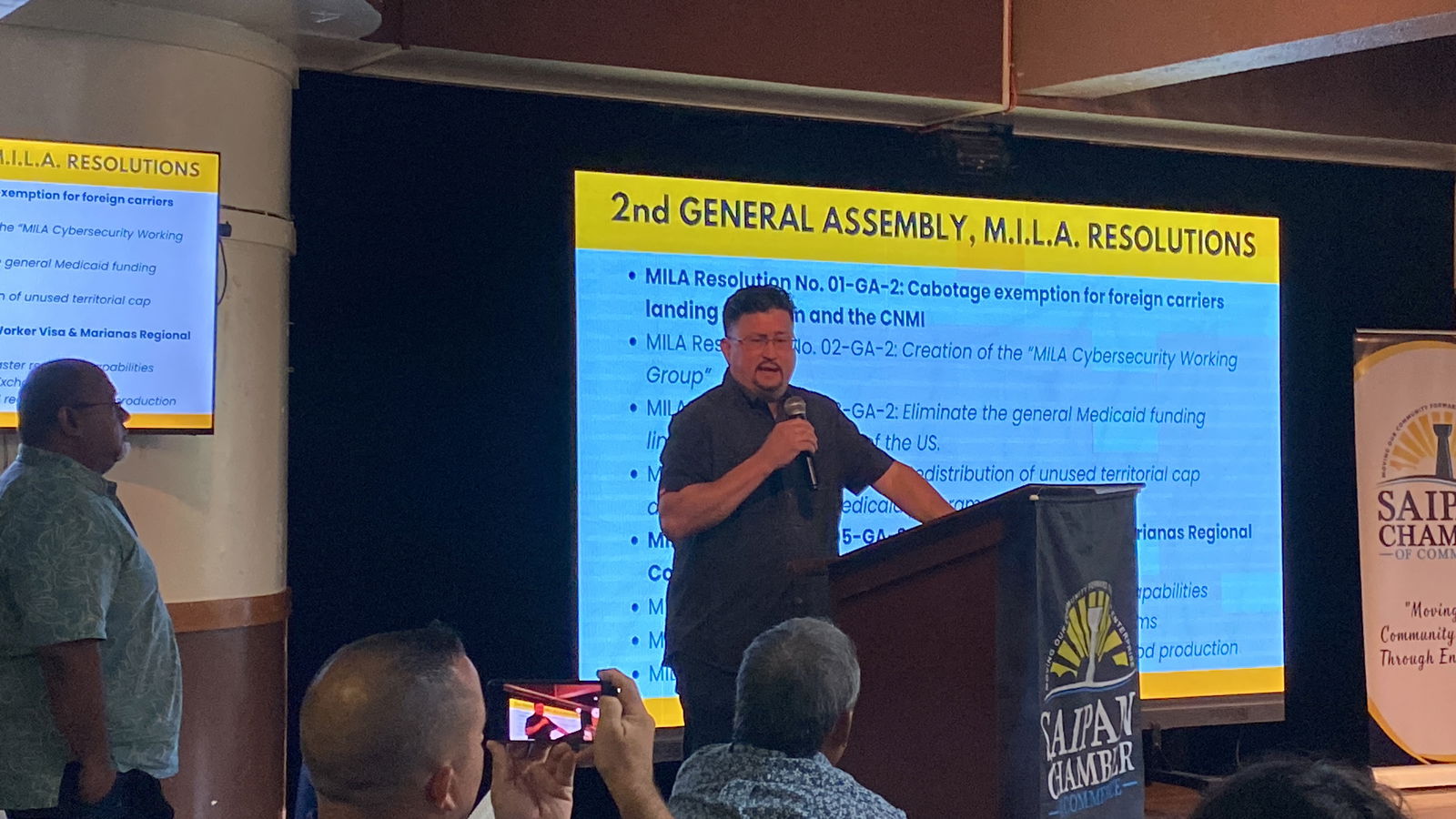
House Floor Leader Edwin Propst speaks at the general membership meeting of the Saipan Chamber of Commerce at the Pacific Islands Club on Wednesday, Aug. 7.
For his part, Propst said the impetus for restarting MILA, which held its only other meeting in 2013, was transportation issues.
He said island to island travel is “cost prohibitive.”
Locals and military families on Guam could travel to the CNMI for business, pleasure, and more, but chose other locations because they can’t afford the CNMI, he said.
“It’s even cheaper to fly to Korea or Tokyo or Manila or much further,” he added. “It’s not fair, especially when we look at other places throughout the United States. Hawaii is a perfect example. The same timeline — a 25-minute flight or 30-minute flight — will only cost you about $100.”
Propst said the resolutions passed by MILA are important in sending a message to the U.S. Congress.
“When they do their own research, they want to see where the leaders of the CNMI stand on these particular issues,” he said. “They want to know where do the political leaders…also the private sector [stand]. That’s why this was so important to have this resolution that we put together, to show that it is a unified voce coming not just from the CNMI but the entire Marianas — one Marianas.”
Correction: An earlier version of this story erroneously described the proposed Marianas worker visa as a “visa waiver.”


